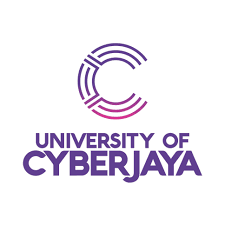Overview
Is Master in Islamic Finance for You?
Our Master in Islamic Finance programme is tailored for those eager to advance their careers in Islamic finance, addressing the evolving demands of the profession. Alongside mastering core Islamic financial principles, this programme places a significant emphasis on enhancing soft skills, including teamwork, data acquisition, critical analysis, effective communication, and innovative problem-solving strategies. A distinctive aspect of this programme is its focus on the burgeoning Islamic Finance start-ups scene, particularly in Islamic Fintech.
Our goal is to sculpt professionals who are not only proficient in the fundamental and technical aspects of Islamic finance but who also possess the managerial acumen and leadership qualities vital for roles in Islamic financial institutions. This programme is an incubator for innovative minds, fostering an ethos of lifelong learning and continuous personal and professional development. Graduates of our Master in Islamic Finance are poised to meet the intricate competency requirements of both financial and non-financial Islamic institutions, making significant contributions across the financial services sector and beyond, in both local and international markets.
Career Impact
Career Prospect
Upon graduating with our Master’s degree, graduates can expect to work in the following roles:
- Senior Executive Finance
- Senior Islamic Financial Consultant
- Islamic Fintech specialist
Career Organisation
Students are also highly sought after by organisations such as:
- Banks/Financial services
- Consulting firms
- Business intelligence research centres
Course Structure
Course Description
UoC’s Master in Islamic Finance aims to produce professionals catering to the competency needs of financial and non-financial Islamic institutions and aims to produce high-potential talents to acquire pertinent knowledge and skills in Islamic Finance through an interdisciplinary approach. This programme also aims to develop and enhance theories and practices of Islamic Finance within the sphere of Maqasid Al-Shariah and to meet the global demand for experts and professionals in Islamic Finance.
Semester 1
- Research Methodology
- Islamic Financial System
- Islamic Financial Contracts
- Islamic Corporate Governance
Semester 2
- Managing Islamic Financial Institutions
- Islamic Social Finance
- Islamic Capital Market
- Accounting for Islamic Financial Institutions
Semester 3
- Islamic Investment Management
- Research Project Paper (Research Project)
The Experience
Who is teaching?
Students are taught by experienced lecturers and researchers employed by UoC.
On Campus Learning
Virtual Tour of University Cyberjaya Campus
Solve World Challenges
UoC’s Master in Islamic Finance is introduced at a time when Islamic finance is increasingly becoming integral to the global financial system. This growth in the Islamic finance sector has sparked new educational initiatives to prepare professionals for this expanding field by a number of countries. Growth in Islamic finance education has aligned with solid growth for the overall Islamic finance industry in recent years.
Our Master’s degree is at the forefront of these educational efforts, offering a curriculum that not only covers the intricacies of Islamic banking but also delves into lesser-explored areas of the industry such as Shariah standards compliance, Takaful (Islamic insurance), and Islamic accounting principles. Through this programme, we aim to empower professionals who can utilise Islamic finance as a tool for positive change, addressing global challenges and paving the way for a more inclusive and equitable financial landscape.
Entry Requirement
Qualification
Requirement
A Bachelor’s degree in related fields with a minimum CGPA of 2.50.
A Bachelor’s degree in related fields with a minimum CGPA of 2.00 and not meeting a CGPA of 2.50 can be accepted, subject to a rigorous internal assessment.
A Bachelor’s degree in non-related fields with a minimum CGPA of 2.00 and with relevant working experience, subject to a rigorous internal assessment.
A Bachelor’s degree in non-related fields with a minimum CGPA of 2.00 and without relevant working experience, subject to passing pre-requisite courses; or other equivalent/related qualifications to a Bachelor’s degree as recognized by the Malaysian Government, acceptable to the University.
Minimum IELTS score of 6.0; or MUET Band 4; or equivalent to CEFR (Mid B2)














